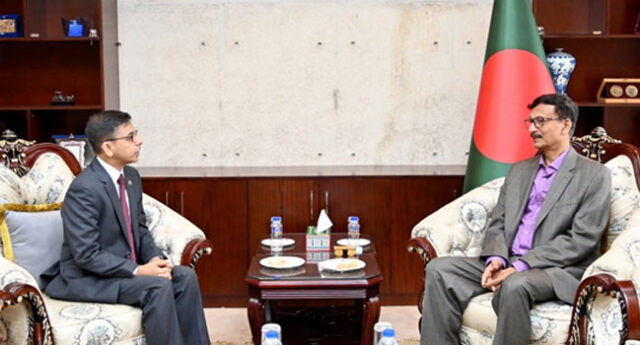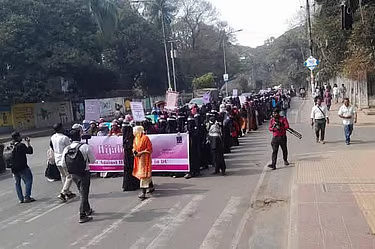Foreign Affairs Advisor Md. Touhid Hossain has emphasized the importance of addressing critical issues with India, such as stopping border killings, finalizing the Teesta water-sharing agreement, and ensuring the stable supply of essential goods.
In a press release from the Ministry of Foreign Affairs, it was noted that Hossain raised these concerns during a meeting with Indian High Commissioner to Bangladesh, Pranay Verma, on Wednesday.
During the discussion, the advisor stressed the need for more “people-centric engagement” between Bangladesh and New Delhi in the coming days.
Regarding the recent statements made by former Prime Minister Sheikh Hasina from India, Hossain remarked that such comments are not conducive to improving bilateral relations. He also highlighted the exaggerated reports in the Indian media concerning events in Bangladesh.
The advisor reiterated Bangladesh’s desire to work closely with India to enhance bilateral ties.
The Indian High Commissioner congratulated Hossain on his new role and conveyed Prime Minister Narendra Modi’s greetings to Chief Advisor and Nobel laureate Professor Muhammad Yunus.
Verma expressed the Indian government’s interest in collaborating with Bangladesh’s interim government to meet the aspirations of the people of both countries.
Hossain thanked the Indian government and Prime Minister Modi for their well-wishes on his new appointment. He reassured that the interim government is committed to ensuring peaceful coexistence among all communities in Bangladesh, including minorities.
He emphasized the government’s commitment to safeguarding the security and protection of all religious and ethnic groups, stating that any violence or intimidation against them would not be tolerated.
The Foreign Affairs Advisor also briefed the High Commissioner on the current situation in Bangladesh, pointing out that the interim government’s primary tasks are to normalize the overall law and order situation and bring the economy back on track.
Hossain affirmed that the interim government is dedicated to paving the way for a transition to an inclusive, multi-party democracy by ensuring free, fair, and participatory elections.
He noted that Bangladesh has recently achieved its “second independence” through a mass uprising led by courageous students. Hossain added that the collective strength of students and the people triumphed over tyranny and oppression, aiming to end discrimination and injustice.
The advisor highlighted that the fearless movement by students against the discriminatory public sector hiring system quickly evolved into a nationwide revolutionary struggle for establishing a fair, just, and inclusive society.
He also mentioned that Nobel laureate Dr. Muhammad Yunus agreed to lead the interim government at the request of the students and the public.









